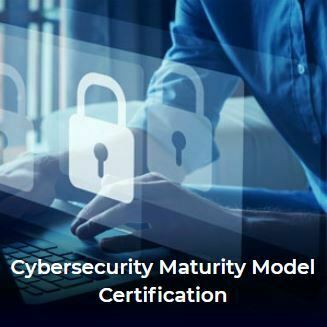WHAT LISTs TO USE FOR SCREENING & WHOm TO SCREEN?
Organizations can diminish the risk of violation of the export control regulations by running the name of persons and entities against the government issued denied and sanctioned party lists and identifying the possible name matches prior to an export or a business activity with foreign entities. This practice is commonly called as the Denied or restricted party screening process.
What Lists to be Used for Screening?
It is generally assumed that a few government agency issued lists are the only lists that need to be used to screen a trade partner. The truth is that those are only some of the lists that require attention. It is recommended that a risk analysis should be done to determine which lists are needed to be used. Type of the business transactions and geographical factors would impose consideration of several other lists. For instance, an organization exporting to or doing business in another country should likely include the denied party lists that are issued by that country’s respective agencies. Companies that are involved in specific business activities, such as government contracts, healthcare or financial activities, should also use the lists that are issued by the agency regulating those transactions.
Who Needs to be Screened?
Based on the best practices, organizations should at minimum screen the following entities. It is also recommended to periodically revise this list to add other business partners;
- Countries where buyer, intermediate consignee, ultimate consignee and end-user are located. Country screening helps to identify potential warnings, restrictions and/or embargoes.
- Customers
- Intermediate and Ultimate Consignees, if different than customers
- End-users, if different than customers
- Pay-to and Pay-from parties in business transactions
- Suppliers and vendors
- Service providers
- New hires & Employees
- Contractors & Subcontractors
- Consultants
- Representatives & agents
- Visitors and their employers
- Recipients of software & technical data
- Freight forwarders
- Customs Brokers
- Banks and other financial institutions
Download White Paper – Best Practices in Denied Party Screening
HOW CAN WE HELP YOU
Hosted and web-based Linqs SPS software effectively screens your customers, suppliers, consultants, employees, visitors and other trade partners
REQUEST MORE INFORMATION & QUOTE
Reliable and Effective Watch List Screening Software
Have Linqs as your partner in compliance, save on time and cost while getting the dedicated support from our experts with average of two decades of industry experience.
Reliable and efficient
Reliable, fast and efficient denied party screening is a necessity. Day-to-day operations require modular and flexible searching capabilities with high accuracy of the results.
From the customer setup to the hire of foreign national employee Linqs streamlines your compliance.
Extensive watch lists
We support more than 240 global watch lists and country warning lists to ensure your business operations stay compliant with the domestic and foreign regulations which are in force.
Variable screening functionality
Real-time single party screening with quick and enhanced screening functionality.
Real-time self-service multiple party/bulk screening.
Comprehensive set of selectable regulatory watch lists.
Country specific warnings and risk assessment independent of the entity searched.
Security and scalability
Hosted, fully web-based architecture to improve the costs and user efficiency.
Industry-standard secure access and encrypted communication.
Highly scalable architecture, with optional download access you can easily extend your screening capability and integrate the Restricted Party lists with your own IT platforms such as SAP, Oracle, and other ERP systems
Why Choosing Linqs for SPS/RPS?
SINGLE ENTITY SEARCH & INSTANT BULK SCREENING
minimIZED false positives
dynamical screening
ERP AND WEB SERVICE SUPPORT
role based workflows
SERIOUS CUSTOMER SUPPORT

See How Can We Help in Your Sector
Customer Case Studies
ISTech
California based defense manufacturer ISTech has offices in the U.S., Asia, and Europe. ISTech lacked the comprehensive approach in complying with the U.S. EAR and ITAR. Thanks to ongoing support from Linqs, ISTech now can easily process the controlled technology globally. Access control processes are streamlined, and customer/vendor vetting process is fully automated with Linqs solutions. The company also maintains cloud based secure file sharing platform to enable collaborative product development.
FBX, Inc.
Subsidiary of a Dutch Holding, North Carolina based industrial drive manufacturer FBX receives, processes, and handles EAR (600 series) and ITAR controlled technology in its facilities. Linqs assisted FBX to develop its compliance policy and procedures, and classified products while training employees. Company now has successfully segregated and isolated the design and production sites for specially designed defense articles, and maintains secure file sharing platform to enable collaborative product development with proper access controls.
TCraft Aerospace
With offices in the U.S. and France, Texas based TCraft’s product line includes jet engine components which are extensively used by the commercial aircraft manufacturers. Interested in undertaking defense article production, TCraft turned to Linqs for an assistance. Started with a development of a robust compliance program and employee training, our experts also classified hundreds of company products and technology. Linqs provides a continued support in document marking and access management to TCraft.



